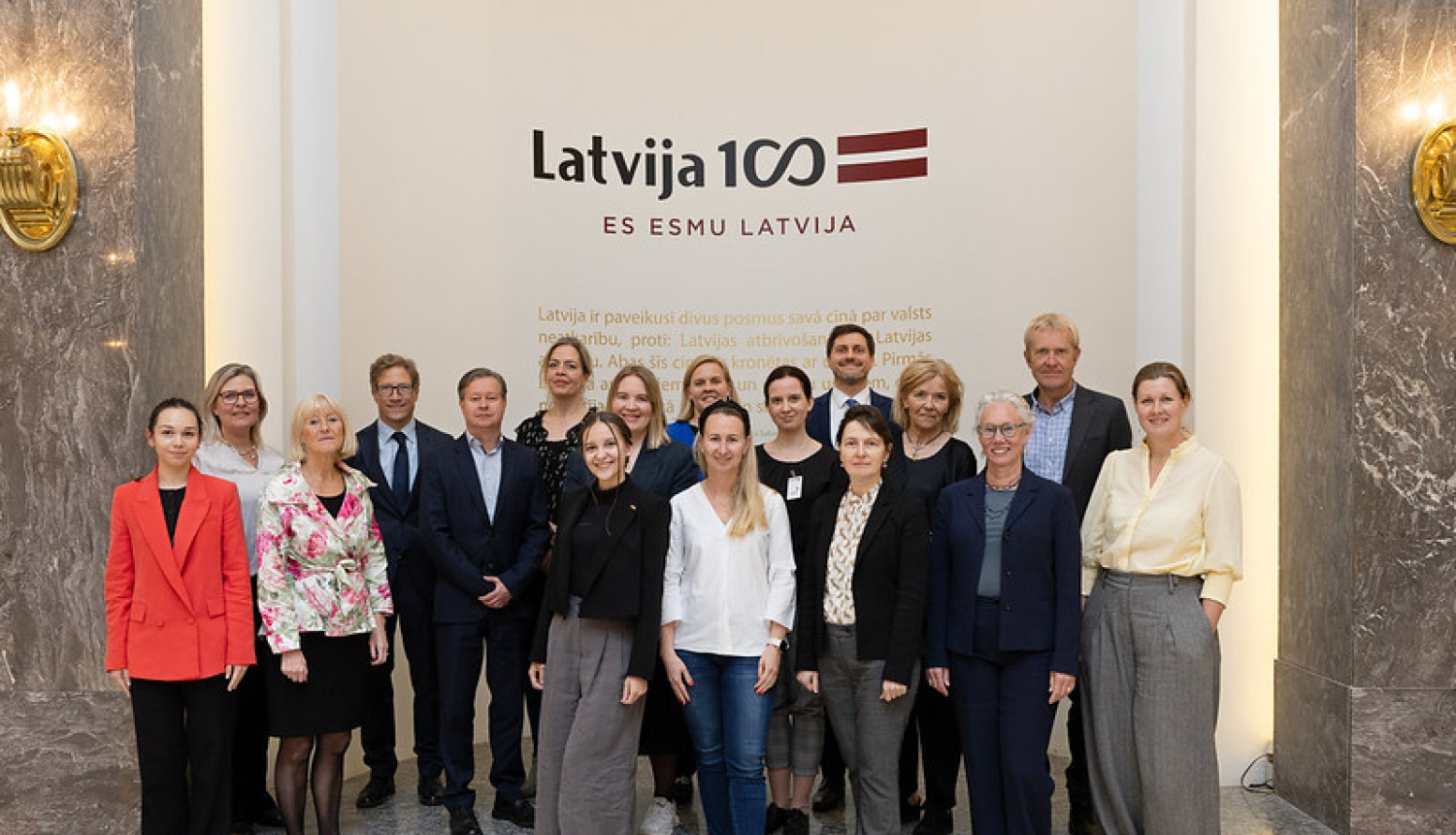On 22 May 2025, the Ministry of Foreign Affairs hosted the annual meeting of the National Contact Points for Responsible Business Conduct of the Organisation for Economic Co-operation and Development (OECD) from the Baltic states and Nordic countries (NB8). At the meeting, representatives of the National Contact Points are sharing their experience and updates on current developments in the field of responsible business conduct, and discussing key challenges and plans for future cooperation.
The meeting is an annual event organised on a rotational basis by one of the NB8 countries, with this year’s host being Latvia.
The experts of the National Contact Points exchanged views on how to promote the OECD Guidelines for Multinational Enterprises on Responsible Business Conduct and the National Contact Points as a support mechanism.
In thematic sessions, a representative from the Latvian National Contact Point, Dace Helmane, outlined the experience of the non-governmental sector in promoting responsible business conduct. The Legal Counsellor at the Ombudsman’s Office, Ieva Liepiņa, for her part, informed those present about the Ombudsman’s role in the areas of business and human rights. The Senior Lawyer at the Human Rights Department of the Ministry of Justice, Gita Daukste, introduced the participants to the implementation of the EU Directive on corporate sustainability due diligence. The aim of this Directive is to ensure that active EU companies foster sustainable corporate behaviour and transition to sustainability in economy and society.
Background information
- The OECD Guidelines for Multinational Enterprises on Responsible Business Conduct are a comprehensive set of recommendations jointly addressed by governments to multinational enterprises aimed at encouraging positive contributions MNEs can make to economic, environmental and social progress, and to minimise adverse impacts on matters covered by the Guidelines that may be associated with an enterprise’s operations, products and services. The Guidelines cover all key areas of business responsibility, including human rights, labour rights, environment, bribery and corruption, consumer interests, disclosure, science and technology, competition, and taxation.
- The Latvian National Contact Point for Responsible Business Conduct (LVNCP) is a collegial body comprising experts who represent the Ministry of Foreign Affairs (performs the functions of a Secretariat), the Ministry of Economy, the Ministry of Finance, the Ministry of Education and Science, the Ministry of Justice, the Ministry of Welfare, the State Labour Inspectorate, the State Chancellery, the Latvian Confederation of Free Trade Unions, the Employers’ Confederation of Latvia, and the Institute for Corporate Sustainability and Accountability.
- The NB8 (Nordic–Baltic Eight) is a cooperation format comprising Denmark, Estonia, Finland, Iceland, Latvia, Lithuania, Norway, and Sweden. Cooperation between the Baltic states and the Nordic countries has been very close since the early 1990s when they were active in the N5+B3 framework, which was transformed into the NB8 format in 2007.




